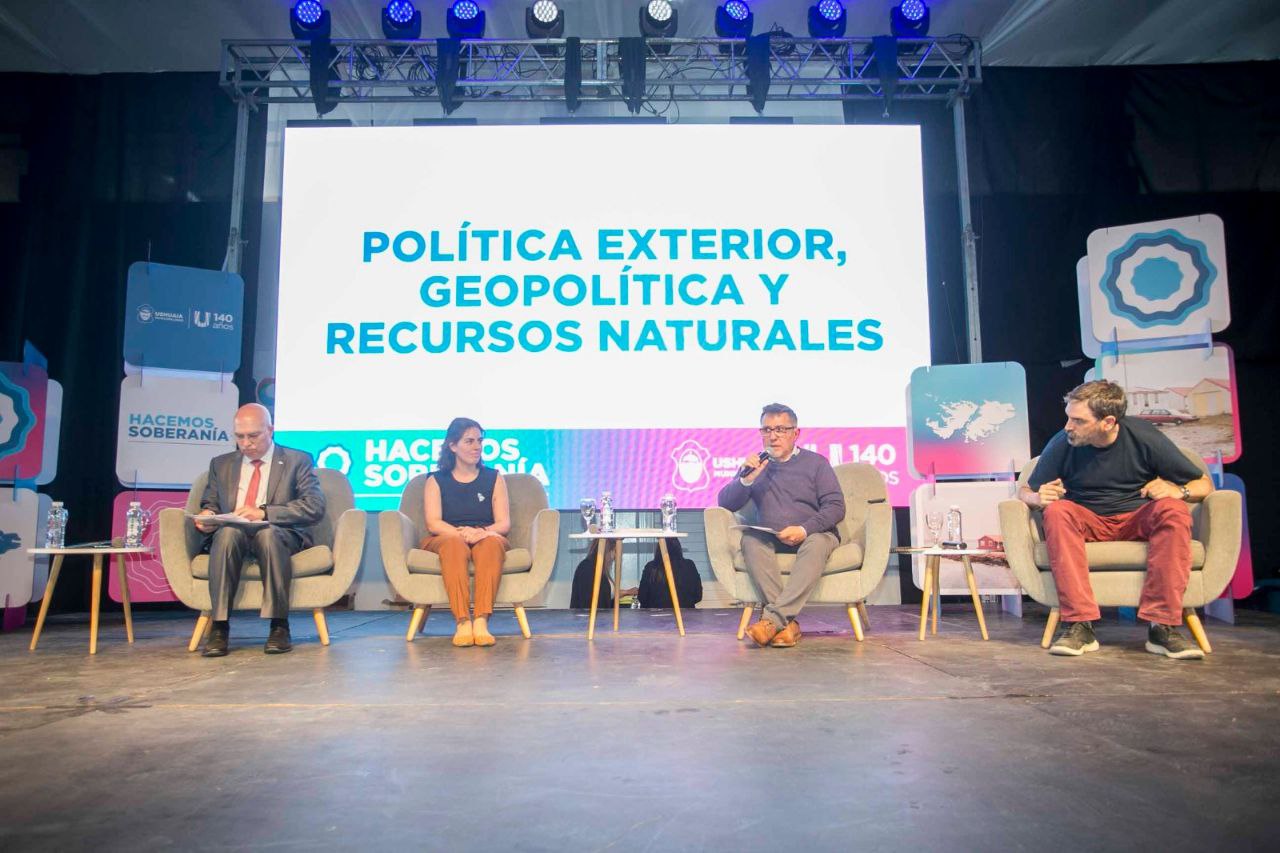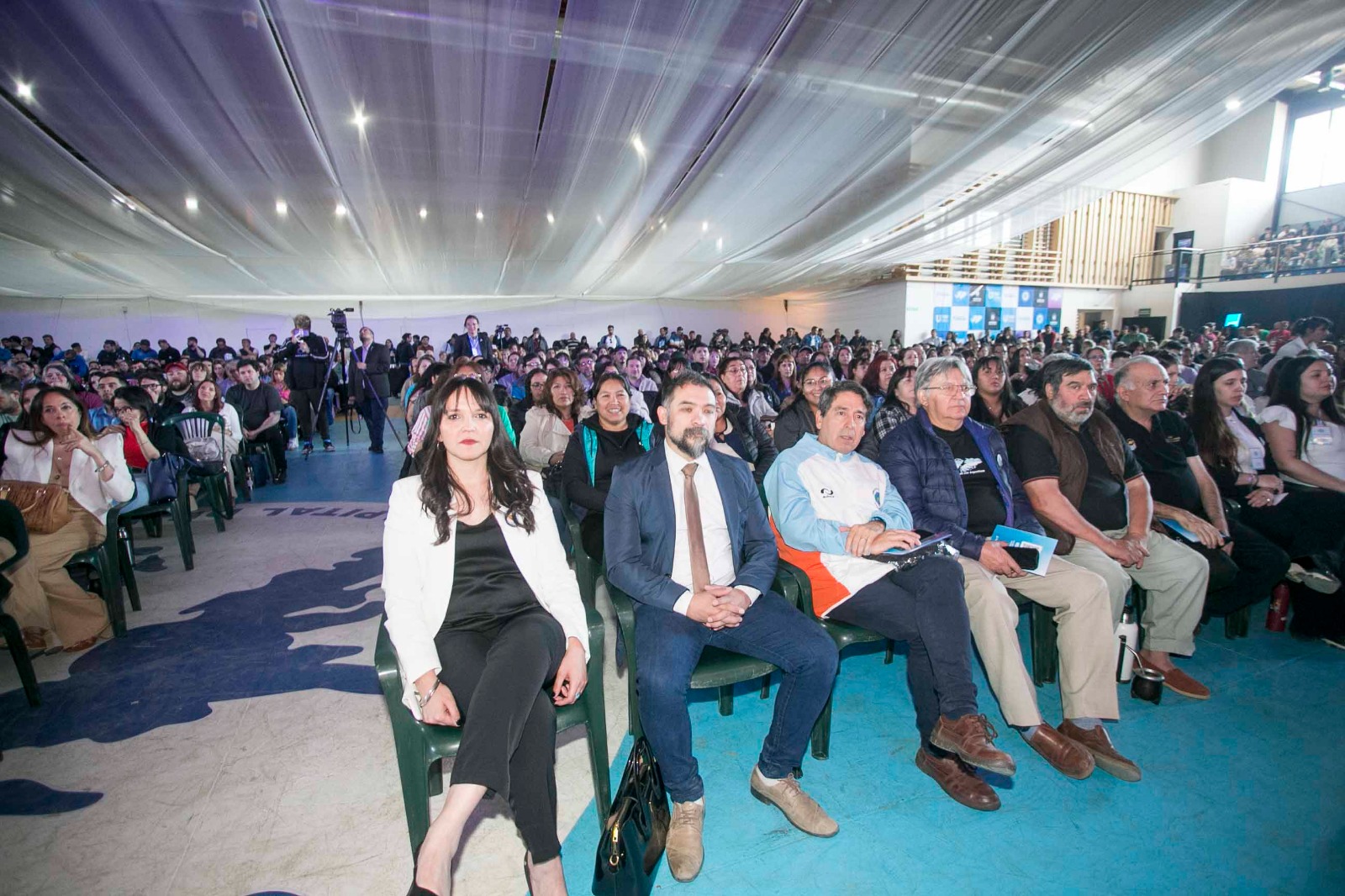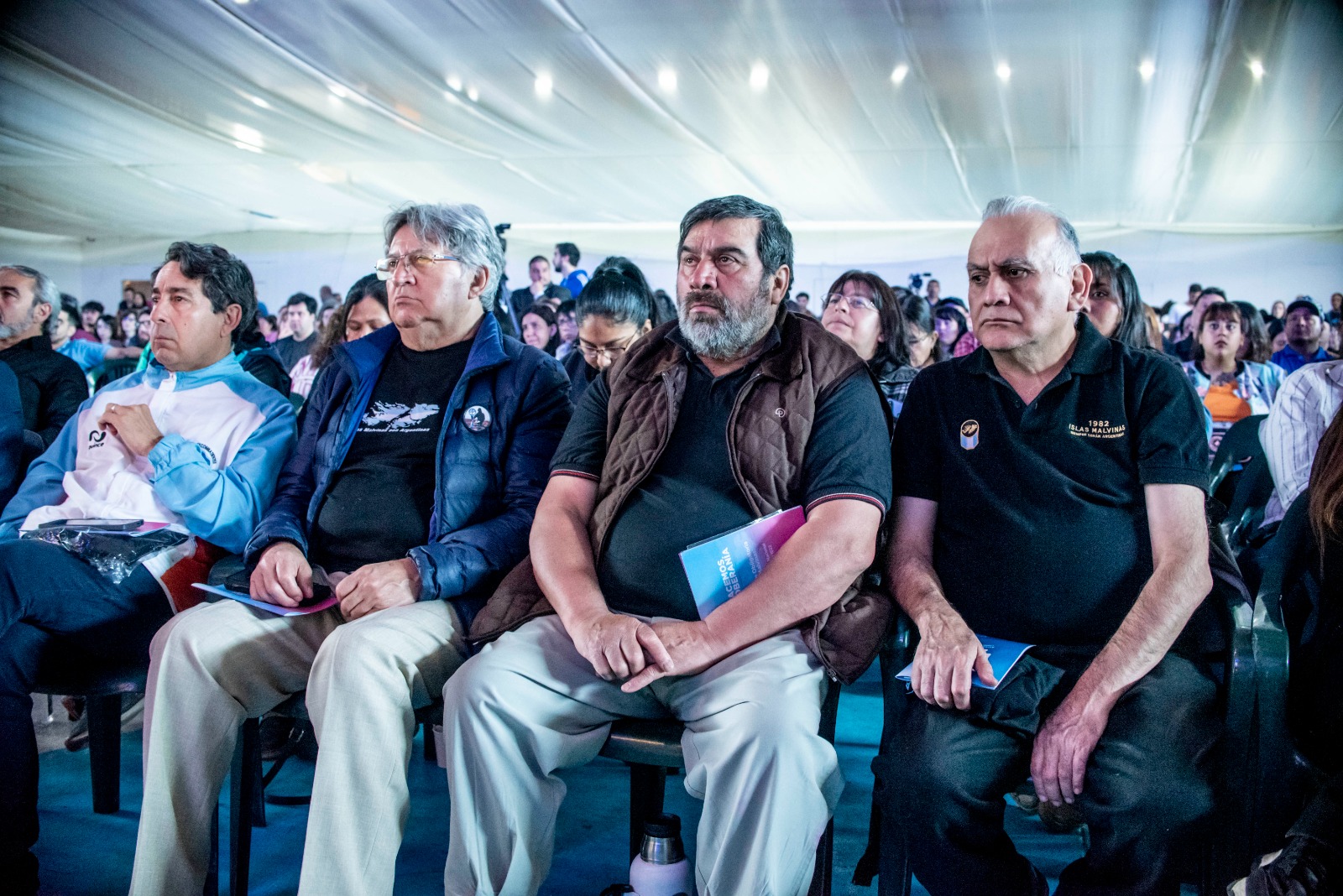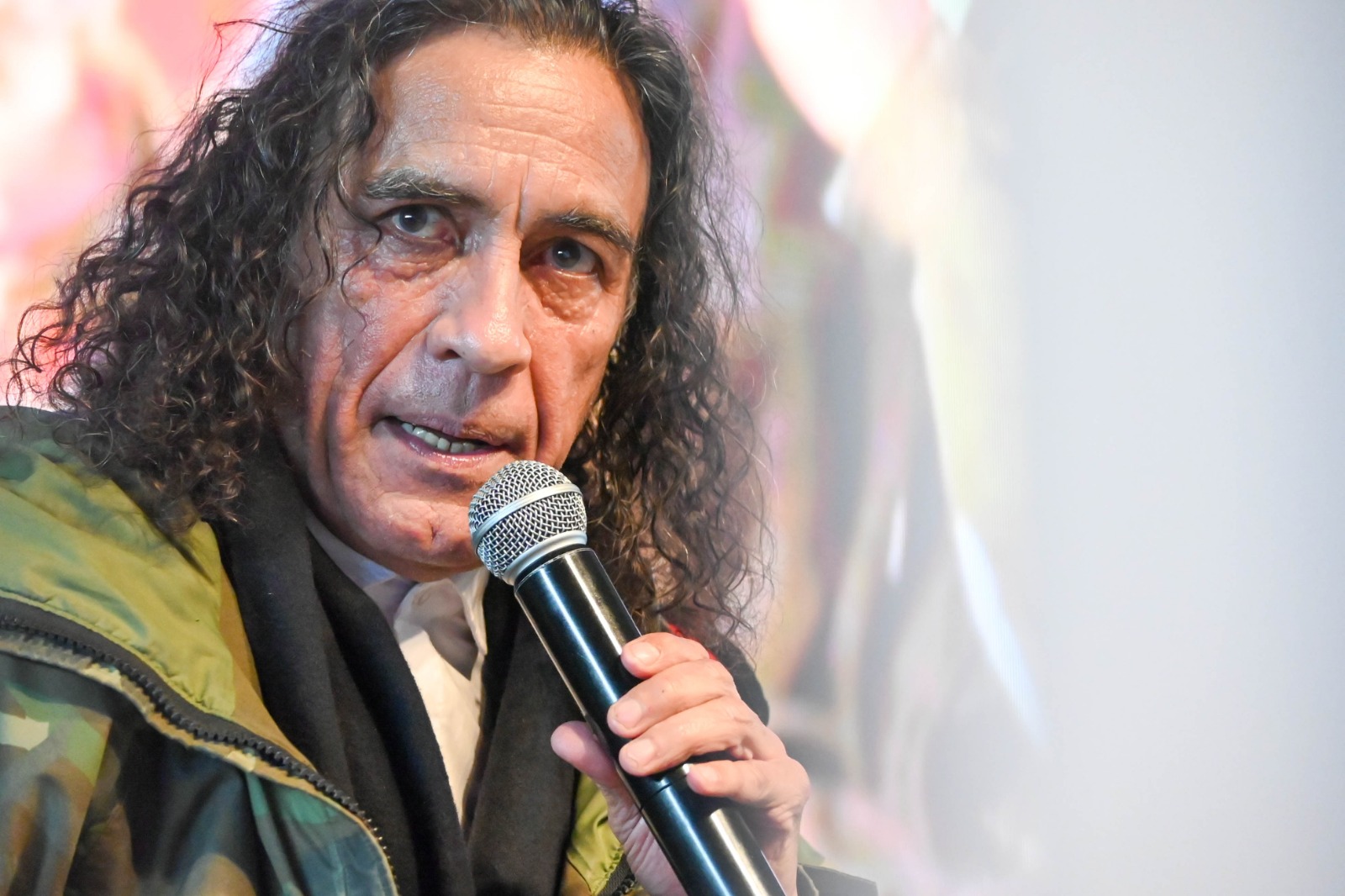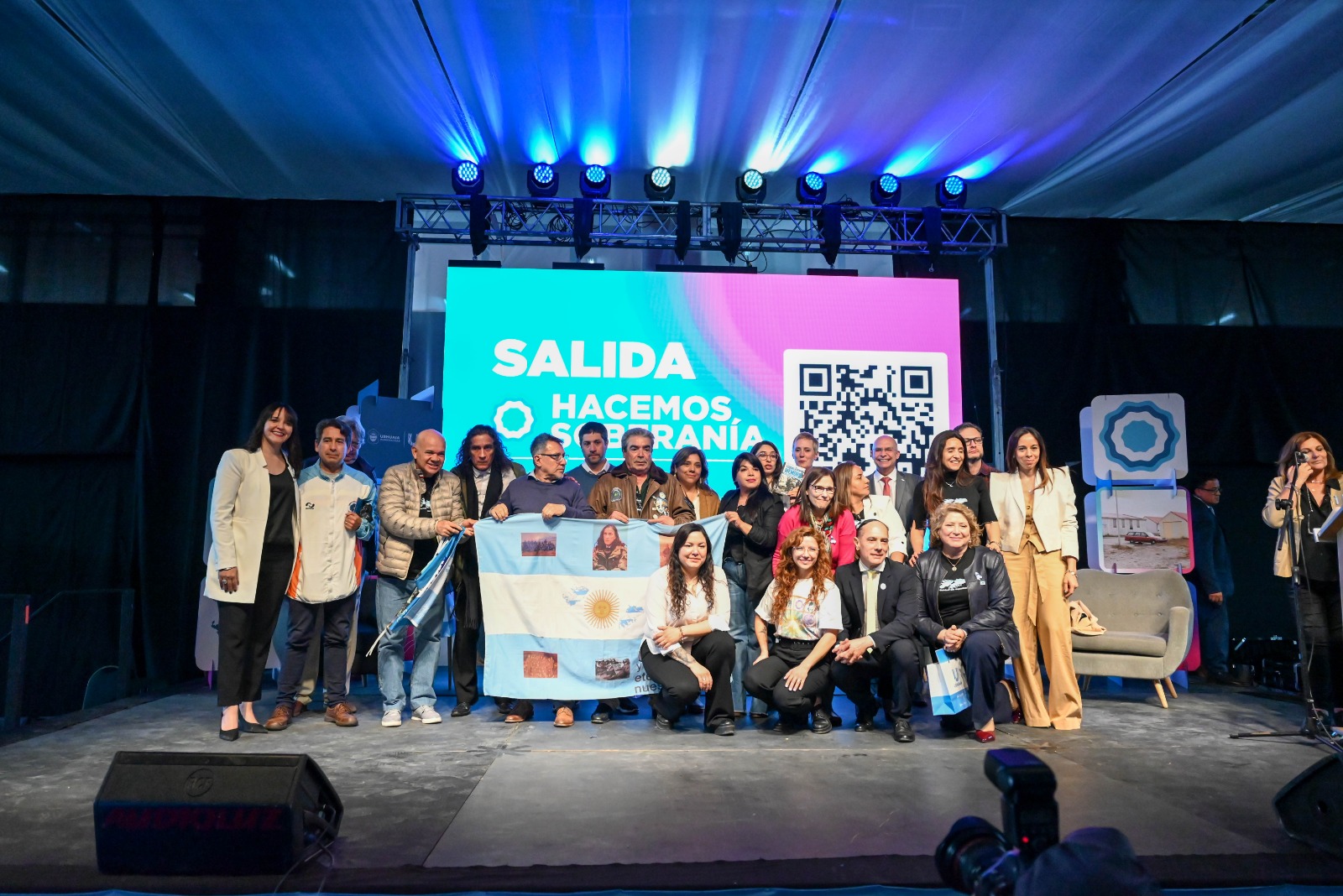Este martes 19, en la víspera del Día de la Soberanía Nacional, el intendente de la ciudad de Ushuaia Walter Vuoto, dio puntapié inicial a la capacitación obligatoria, periódica y permanente sobre la “CUESTIÓN DE LAS ISLAS MALVINAS”, establecida por Ley Nacional 27.671 a la que la ciudad adhirió.
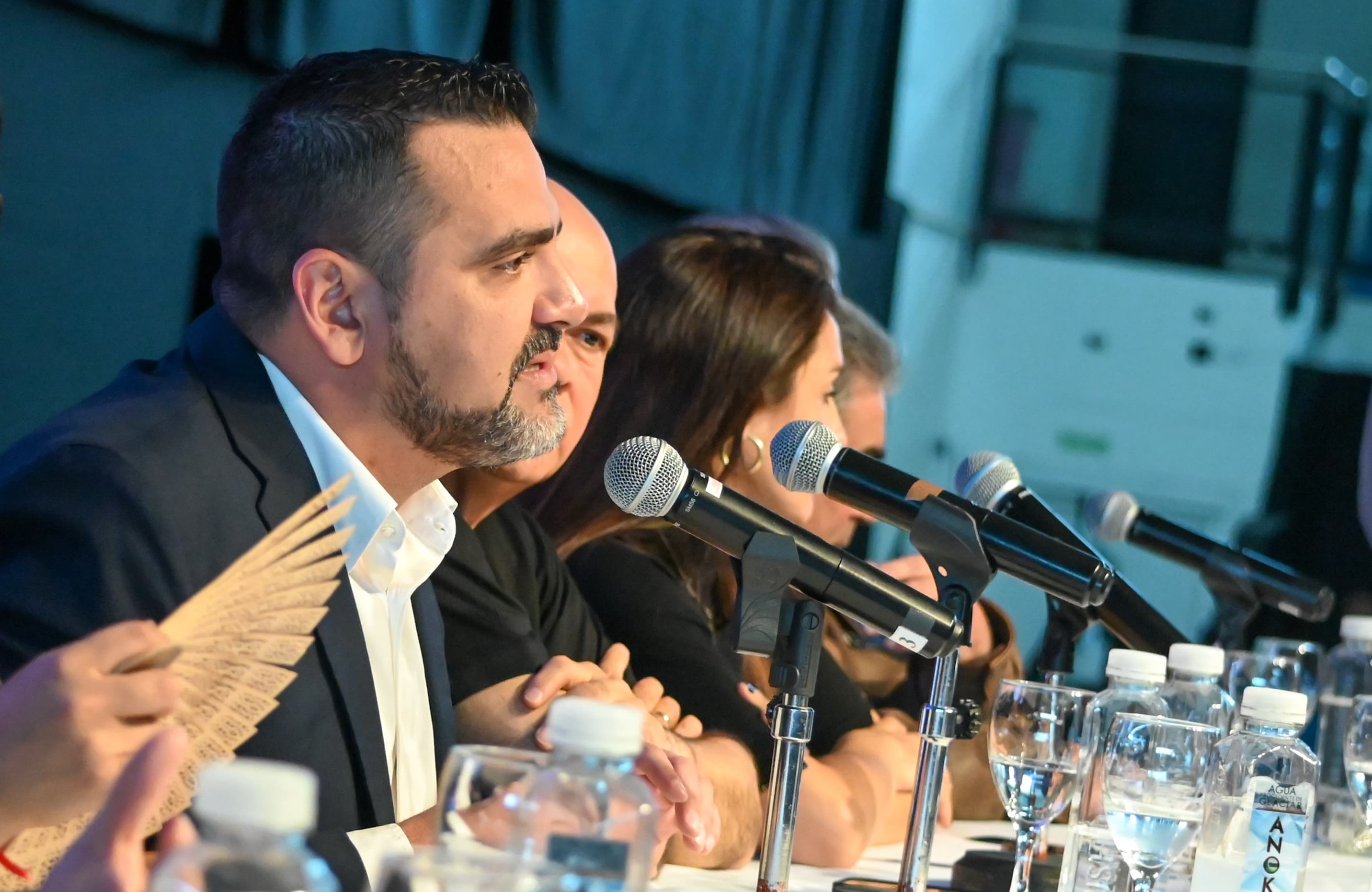
Un programa pedagógico desarrollado desde el Sindicato Unificado de Trabajadores de la Educación Fueguina, y que cuenta con el aporte de la magister Susana Pereyra, Licenciada en Relaciones Internacionales de la USAL, docente de la UAI y de la Universidad Nacional de la Defensa; quien guía la complejidad de la Cuestión Malvinas.
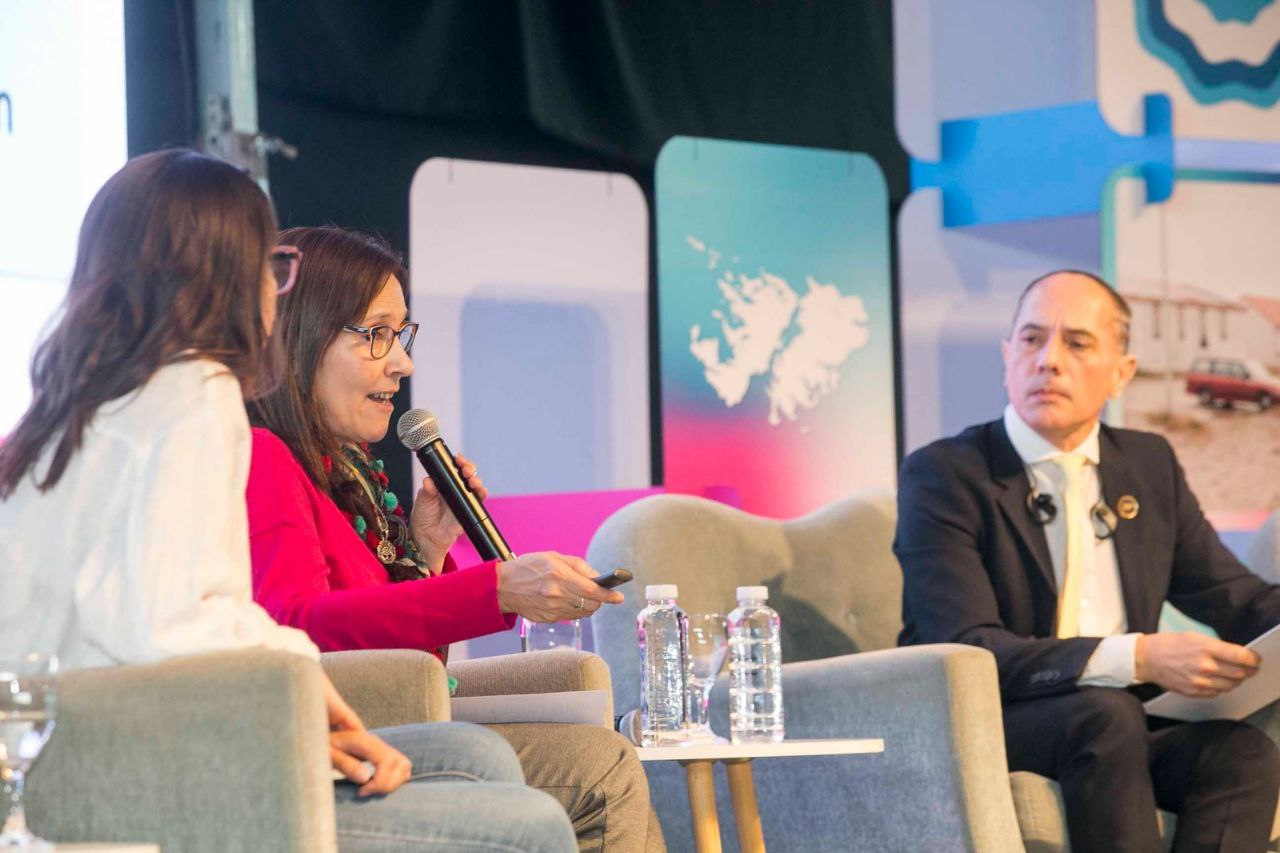
La magister Susana Pereyra exponiendo en el eje configuraciones identitarias
Planificado como seminario y desarrollado en tres ejes: Aspectos históricos y jurídicos de la Cuestión de las Islas Malvinas; Política exterior, geopolítica y recursos naturales; y Malvinas y las configuraciones identitarias; la actividad dio comienzo a las 09:45 y se proyectó hasta las 15 horas del pasado martes.
Tuvo como expositores a los descendientes de Luis Vernet y María Sáez; Clara Vernet y José Luis Vernet; al licenciado en Ciencias Políticas y docente Lucio Verdoia; al Licenciado en Relaciones Internacionales, docente y abogado Pablo Wehbe, a la Ingeniera en Pesca Mayra Padín; a la Magister, licenciada en Relaciones Internacionales, docente e investigadora Susana Pereyra; a la Licenciada en Comunicación, periodista y escritora Gabriela Naso; a la Magister en Educación, docente e investigadora Karin Otero y al Magíster en Integración Latinoamericana y Licenciado en Relaciones Internacionales Julián Kelly.
Se entiende a la “CUESTION DE LAS ISLAS MALVINAS”, como la disputa de soberanía entre la República Argentina y el Reino Unido por las Islas Malvinas, Georgias del Sur, Sándwich del Sur y los espacios marítimos correspondientes. Tiene su origen el 3 de enero de 1833 cuando el Reino Unido, quebrantando la integridad territorial, ocupó ilegalmente las islas y expulsó a las autoridades argentinas, impidiendo su regreso, como la radicación de nuevos argentinos provenientes del territorio continental; e implantando colonos de las islas británicas.
Una apertura institucional con presencia Nacional
Al dejar inaugurado el encuentro de formación permanente, el Intendente de la ciudad capital de Malvinas agradeció a los trabajadores municipales, quienes masivamente siguieron las exposiciones de los profesionales participantes. También el acompañamiento del gobernador Gustavo Melella, a la legislatura y a los concejos deliberantes de Ushuaia y Tolhuin, quienes declararon de interés provincial y municipal al Seminario.
El cierre estuvo a cargo de los excombatientes de Malvinas, Dante Asili; Daniel Guzmán y Horacio Chávez; quienes reiteraron la necesidad de hablar menos de la guerra y darle más importancia a la capacitación y a la formación en todos los ámbitos de la sociedad, de lo que pasa en las Islas Malvinas a raíz del despojo sistemático de las riquezas y recursos naturales de los argentinos; por parte del Reino Unido de Gran Bretaña.

En la apertura institucional, el intendente Walter Vuoto estuvo acompañado, por viceintendenta Gabriela Muñiz Sicardi, la Senadora Nacional María Eugenia Duré, autora de la ley de Capacitación; de las Diputadas Nacionales Agustina Propato, Carolina Yutrovic y Andrea Fretes; del Diputado Nacional y Veterano de Guerra Aldo Leiva, del Secretario Asuntos Malvinas de Ushuaia y Veterano de Guerra Dante Asili, y del Presidente del Centro de Excombatientes de Malvinas en Ushuaia, Veterano de Guerra Juan Carlos Parodi.
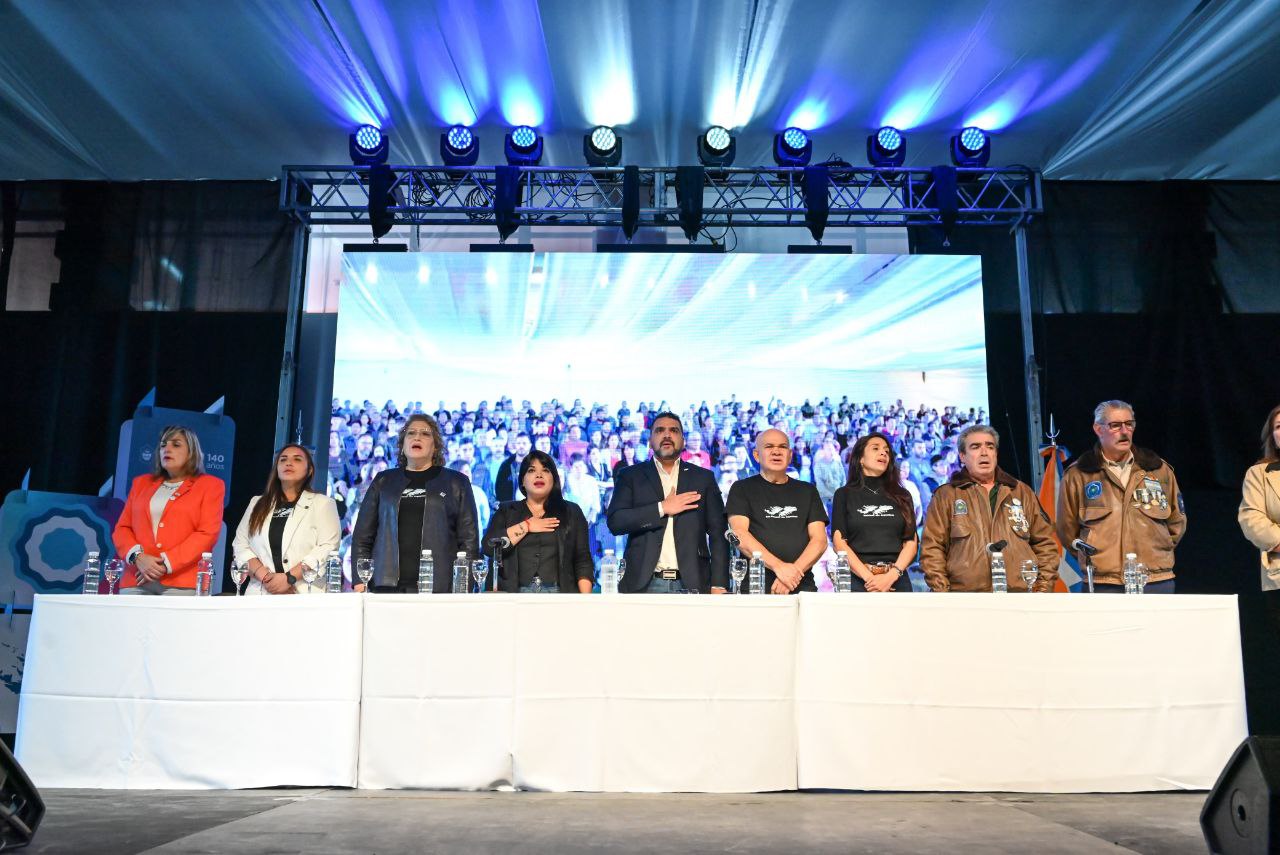
La “CUESTIÓN DE LAS ISLAS MALVINAS” y la Ley
El 15 de junio de 2022, a instancias de un proyecto presentado por la Senadora Nacional por el Frente de Todos, de la provincia de Tierra del Fuego AeIAS, María Eugenia Duré; el Congreso de la Nación sancionaba la Ley 27.671, que establece la capacitación obligatoria, periódica y permanente sobre la “CUESTIÓN DE LAS ISLAS MALVINAS”, para todas las personas que se desempeñen en la función pública en todos sus niveles y jerarquías en los poderes Ejecutivo, Legislativo y Judicial de la Nación.
La “CUESTIÓN DE LAS ISLAS MALVINAS” o la “CUESTIÓN MALVINAS”, como se la conoce coloquialmente; ha sido calificada por las Naciones Unidas como un caso de descolonización colonial especial y particular, donde subyace una disputa de soberanía y por ende, a diferencia de los casos coloniales tradicionales, no resulta aplicable el principio de libre determinación de los pueblos.


